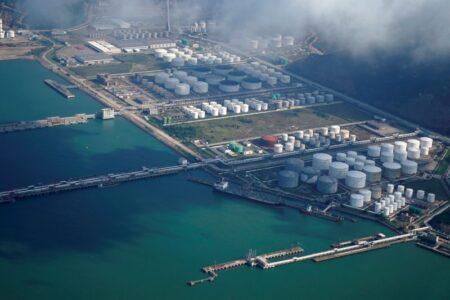MOSCOW (Reuters) – Russia is considering imposing an additional tax tied to the rouble-dollar rate on exports of metals, fertilisers and some other commodities, sources in two major exporting companies told Reuters on Wednesday.
The tax, which may be imposed from October and last until the end of 2023, would apply to all major export contributors to the Russian gross domestic product (GDP), excluding oil, gas, grains, timber, machine building and scrap metal.
“The idea appeared out of the blue, discussions about it were kept secret,” one of the sources said.
The discussions at the government were first reported by the Interfax news agency, which quoted sources as saying that the tax could be imposed from next month, but one of its sources added that it could also be extended to 2024.
According to one of the Reuters’ sources, the tax would apply to “long-distance” exports, meaning it would not affect deliveries to Russia’s neighbouring countries such as Belarus or Kazakhstan, and its prospects for 2024 are unclear yet.
President Vladimir Putin in June cited positive data points to laud Russia’s economic health and said surging defence spending was needed to boost national security, as Moscow grapples with the cost of fighting in Ukraine.
Russia’s budget deficit for January-August narrowed to 2.36 trillion roubles ($24.6 billion), or 1.5% of GDP, being driven by falling revenues, but also surging spending, particularly on what Moscow calls its “special military operation” in Ukraine.
The size of the tax under discussion, according to one of the sources, would be up to 7% when the currency rate is higher than 95 roubles per dollar and would gradually decline to 3% when one dollar is equal to 80-85 roubles.
The rouble ended Wednesday at 96.15 per dollar..
Russia’s economy ministry declined to comment, the finance ministry has not replied to a Reuters’ request for comment.
Read the full article here












